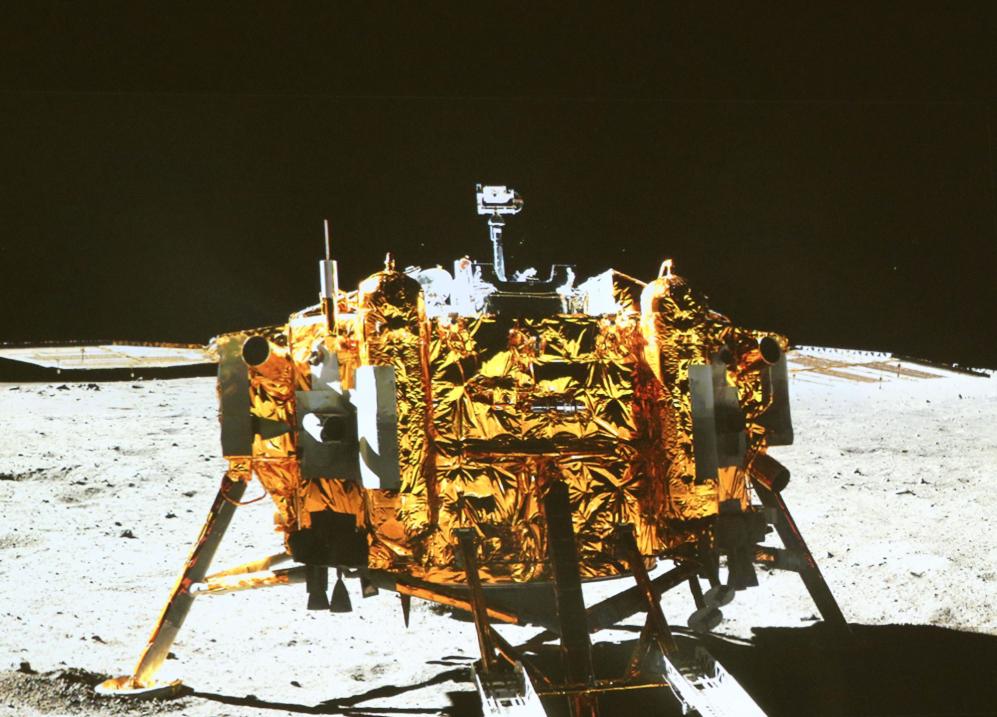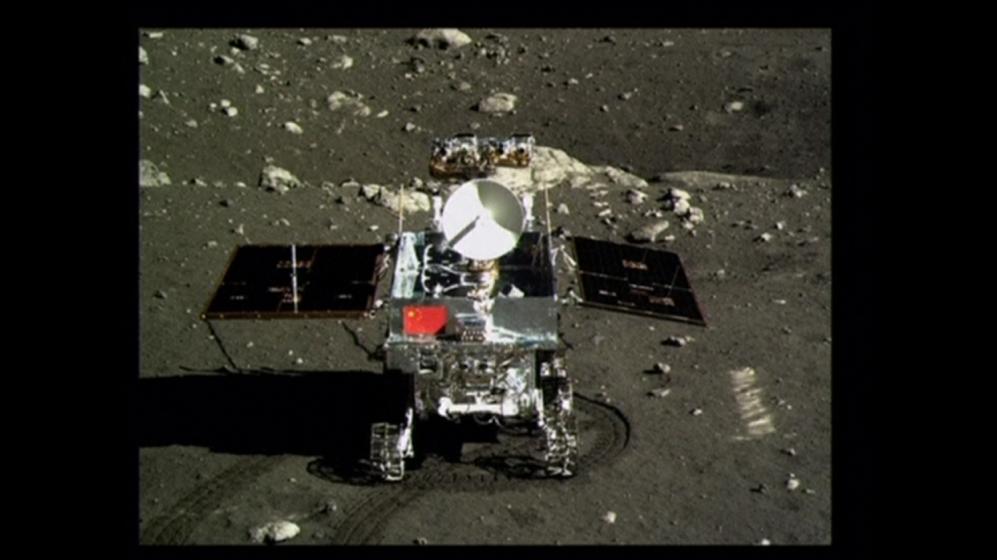Mastering Space
"It's still a significant technological challenge to land on another world. Especially somewhere like the moon, which doesn't have an atmosphere so you can't use parachutes or anything like that. You have to use rocket motors for the descent and you have to make sure you go down at the right angle and the right rate of descent and you don't end up in a crater on top of a large rock."
"They are taking their time with getting to know about how to fly humans into space, how to build space stations ... how to explore the solar system, especially the moon and Mars."
"They are making good strides, and I think over the next ten to twenty years they'll certainly be rivalling Russia and America in this area and maybe overtaking them in some areas."
Peter Bond, consultant editor, Jane's Space Systems and Industry
China, making world history again. Quite remarkable an advance to have achieved in somewhat of a relatively brief period of time. The Cultural Revolution is not all that distant in the historical past. Beijing did an amazing U-turn in its trajectory. The Communist Party of China abandoned its horrendously dysfunctional drive to convert human nature into an army of mechanical quasi-human, self-abnegating, self-sacrificing robots dedicated to the common weal of social uniformity.

The Chinese mentality is a sharp one of hugely intelligent people. The Chinese Politburo was forced to recognize that people cannot forever be pounded into square holes when their conformation is round. And they were forced as well to recognize that just as they themselves reacted to the allure of gaining whether it be recognition or wealth, so too do all other people react positively to whatever advantages them.
The great equalizer is the opportunity to amass wealth. And the most reliable and advantageous route to achieving wealth is the capitalist system. The experiment that Communist China embarked upon when it took possession of Hong Kong from Great Britain was that that intensely successful experiment in channeling human greed and the drive to acquire, could be harnessed to communism.
That harnessing has enabled China to become the world's manufacturing centre.
It has enabled China, despite the sacrifices (in environmental degradation and population health) made to gain and to retain that position of rare influence and power, to become immensely wealthy as well. With that wealth China has been enabled to let loose its scientists so the country could achieve within its own immense borders and for its own gigantic population advances in medical science and pure science itself.
The traditional export of Chinese intellectual brilliance to other countries of the world where science has benefited universally demonstrates the extraordinarily compelling competitive drive and cerebral functioning of an ethnic group.
The national ambition to achieve great heights and world recognition has motivated Beijing to embark on many directions new to them but to which they have felt entitled to achieve. Chinese creativity amazed the world looking in on the introductory ceremonies of Beijing's Summer Olympic Games, with the breathtaking creative wizardry of a country determined to fete the world. And they did.
And now another venture of huge significance both to China and to the world of science and exploration. China's first moon-rover is now wandering the surface of the moon. The landing vehicle and the rover will each separately take photographs of their environment and themselves at work on the lunar surface. The rover is engineered to survey the moon's geology and surface and hunt for the presence of natural resources.
 |
| China Central Television image -- Moon rover, Jade Rabbit |
The lander itself will continue to carry out scientific exploration around the landing site for a one-year period. The Chang'e 3's solar panels are used to absorb sunlight for the generation of power. China sent its first astronaut into space in 2003 and sent its first probe to the moon in 2006. Around the year 2020 China plans to have a functioning space station in operation, and soon afterward, to send a Chinese astronaut to the moon.
Whatever other new horizons beckon as a challenge to China we will soon enough be apprised of.
Labels: China, Exploration, Natural Resources, Science, Space, Technology, Trade, Traditions

<< Home